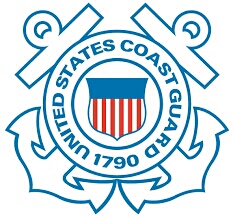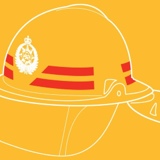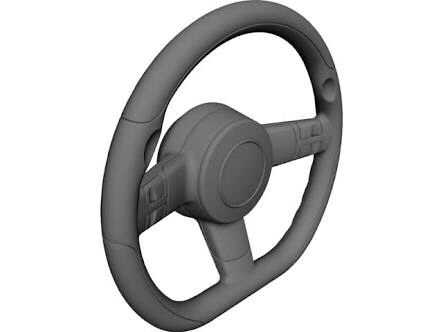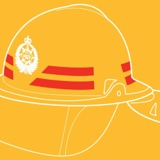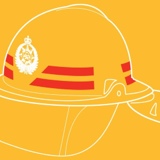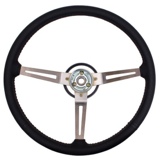Information
-
Client / Site
-
Conducted on
-
Prepared by
-
Location/Facility
-
Inspectors
Name, ID
-
Add signature
Liferaft Information
-
Name of Liferaft's Vessel
-
Number of Persons
-
Type of Liferaft
-
Liferaft Manufacturer
-
Date of Manufacture
-
Serial Number
-
Add media
-
Inspection Type
- Oversight
- Audit of servicing facility
- Training
-
Use of life raft inspection book:
This inspector book is intended to be used as a job aid by Coast Guard marine inspectors during inspections of life rafts at serving facilities. The lists contained within this book are not intended to limit the inspection. Each marine inspector should determine the depth of the inspection necessary. A check box should be a running record of what has been inspected. It does not imply that the entire system has been inspected or that all or any items are in full compliance. This job aid does not constitute part of the official inspection record.
This document does not establish or change Federal laws or regulations. References given are only general guides. Refer to IMO publications, CFRs, NVICs or any local produced site guides for specific regulatory references. Not all items in this book are applicable to all life rafts.
Reference 46 CFR 160.151-57
Annual Inspection
-
Working pressure leak test
-
Must be conducted in accordance with IMO Resolution A.689(17), paragraph 2/5.1.5
-
Inflation hoses
-
Pressurized and checked for damage and leakage
Maybe included as the Working pressure leakage test -
Inflatable floor
-
Inflated until firm and let stand for one hour
Must still be firm after one hour
Seams connecting floor to buoyancy tube free from slippage, rupture, and lifting of edges -
Survival equipment
-
Replace if passed expiration date
Repaired or replaced if damaged and unserviceable -
Battery
-
Replaced with a fresh battery if passed expiration date
Measured voltage is less than rated voltage -
Top and inside canopy light
-
Inspected and tested as prescribed in the servicing manual unless battery is included above
Each cell that is outdated, fails test, or is not tested must be replaced -
EPIRB and/or SART (If equipped)
-
Tested and inspected in accordance with the manufacturer's instruction EEPROM must be tested using the integrated test circuit and output indicator to determine whether its operative each EProbe or sort not operative must be prepared and replaced
-
Manual inflation pump
-
Tested for proper operation
-
Identification labels
-
Damaged faded or incorrect instruction or identification labels on life raft or containers must be replaced
-
Retro reflective material
-
Each life raft examined to ensure that it is properly marked with retro reflective material Arrangement of retro reflective material must meet the requirements of IMO Res. A.658(16) Damaged or missing retro reflective material must be replaced with Type 1 material approved under Part 164 subpart 164.018, of this subchapter as complying with SOLAS
-
Inflation cylinder
-
Each inflation cylinder must be weighed
If weight loss exceeds 5% of the way of the charge, it must be recharged -
Recharged inflation cylinders
-
Must renew:
The poppet pin, if any
Each plastic or elastomeric seal and other parts that deteriorate with age
Each recharged cylinder must stand for at least 2 weeks and be checked for leakage by weighing before being reinstalled
OR
As an alternative: For fast detection. If provided for in the approved servicing manual, mechanical or chemical test -
Hydrostatic test inflation cylinders (if required)
-
Tested in marked in accordance with 49 CFR 173.34
-
Davit launched life raft
-
Lunching load test conducted at every second servicing
Test must be conducted in accordance with IMO Res A.689(17) par. 2 /5.2 -
5 years gas inflation test
-
At every 5th in your servicing, each life raft must be removed from its container and inflated by its gas inflation system will still folded.
Any minor leaks during gas inflation must be repaired
Life rafts 10 or more years past its date of manufacture must be condemned if it leaks extensively, or shows fabric damage other than minor porosity during the gas inflation test
Life Raft (10 year or greater)
-
Life raft (10 year >)
-
If a gas inflated test is not conducted, a "Necessary Additional Pressure" (NAP) test must be conducted
A NAP test must be completed before the annual test inspection -
Procedure for NAP test (Life raft 10 years >)
-
Plug or otherwise disable pressure-relief valve
Gradually raise the pressure to the lesser of 2 times the design working pressure
OR as specified in the servicing manual
After 5 minutes there should be no seam slippage, cracking, other defects or pressure drop greater than 5%. If crackling is audible or evident, accompanied with the pressure loss condemn the life raft. -
Floor seam test procedure (life raft 10 years >)
-
Buoyancy tube supported a sufficient distance above the floor of the servicing facility, a person weighing not less than 165 pounds shall walk or crawl around the entire perimeter of the floor of the life raft
The seams connecting the floor to the buoyancy tube must be inspected for slippage, rupture, and lifting of the edges
OR
According to the servicing manual
Additional Facility Requirements
-
Life rafts that have been serviced
-
Servicing facility must permanently mark the life raft outside the canopy, or on a servicing record panel on the interior portion of one of it's buoyancy tubes near an entrance with:
Date of servicing
Identification and location of servicing facility
Indication that the special fifth-year servicing was performed (If applicable)
Identification device; outside container with the name and port of registry
OR
on outside of canopy; The vessel on which the raft will be installed or the name of the vessel owner -
Inspection sticker
-
Inspection sticker to be affixed to the life raft container, Must be of a type that will remain legible for at least 2 years when exposed to a marine environment
Must be about 100mm X 150mm (4 X 6 in)
Last digit of the year of the expiration date
Marked with Coast Guard Identifying Insignia -
Inspection sticker must contain the following
-
Name of the Manufacturer of the life raft
Year and month of the expiration date
Identification of the servicing facility, printed on the sticker or indicated on the sticker by a punch using an approval code issued by the commandant -
Expiration dates
-
Expiration date of the servicing sticker is 12 months after the date of the life raft repacked, except that:
For a NEW Life raft , the expiration date may be not more than two years after the date the life raft was first packed
If the survival equipment will not expire before the life raft expiration date
And the life raft will not be installed on a vessel certificated under SOLAS
Life raft stored indoors for 6 months:
Under controlled temperature (between 32°F - 113°F) expiration date may be extended up to length of time stored
Life raft stored indoors for 12 months:
Under controlled temperature (between 32°F - 113°F) expiration may be extended up to length of time stored if the life raft was opened, inspected, and repacked in a servicing facility approved in accordance with 46 CFR 160.151-49 and 46 CFR 160.151-51. Once the life raft is opened
The condition must be visually checked and found to be satisfactory
Inflation cylinders must be checked and weighed in accordance with paragraph 46 CFR 160.151-57(b)(12)
All survival equipment whose expiration date has passed must be replaced
All undated batteries must be replaced -
Condemned life rafts
-
Facility must remove and destroy markings of CG approval on each condemned life raft
-
Life raft servicing certificates
-
The servicing facility must issue a certificate the life raft owner's agent for each life raft it services. The certificate must include:
The name of the manufacturer of the life raft
The serial number of the life raft
The date of the servicing and repacking
A record of the fifth-year gas inflation test
Record of the hydrostatic test of each inflation cylinder required
Record of any test deviation from the servicing manual
Identification of servicing facility
Name of vessel or owner
Date of life raft returned to owner -
Record keeping
-
The servicing facility must keep a record of each life raft approved by the Coast Guard for at least five years. Records must include:
Serial number of the life raft
Date of servicing
Identification of any Coast Guard Inspector present
Name of vessel or vessel owner
Date the life raft is returned to owner's agent -
Annual report
-
Servicing facility must provide OCMI annual statistics showing nature and extent of damage and defects found
Notes
-
Add media
